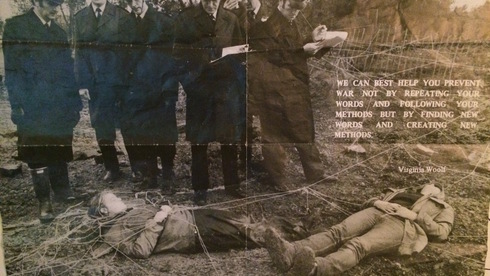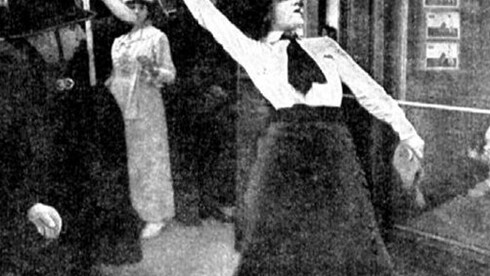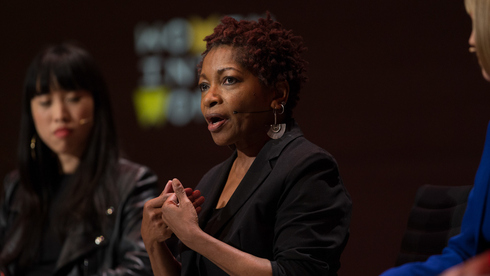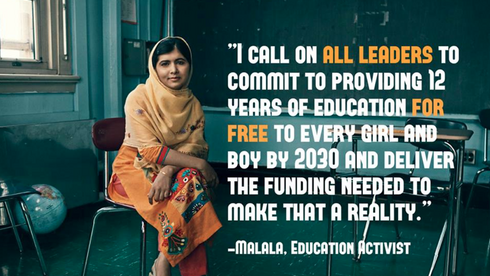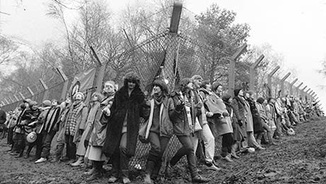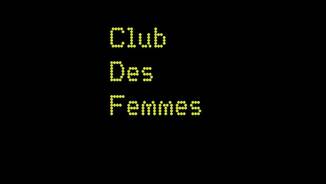
BAKING BREAD FOR PEACE WITH GREENHAM GRANNY: An interview with Caroline Goldie
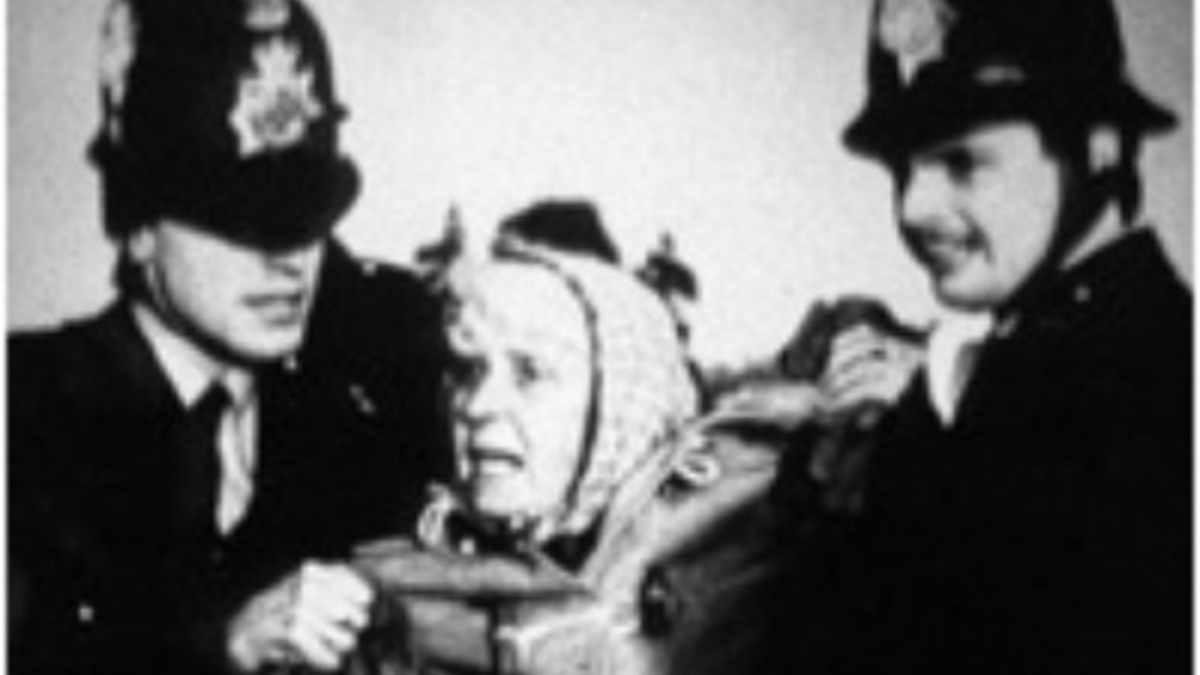
Ahead of Club des Femmes’ Bringing Greenham Home weekend 23-24 January at the Rio cinema, we asked director Caroline Goldie about her memories of Nell Logan, the experience of shooting her first film and how it all kicked off in Leipzig.
CdF: What prompted you to make a film about Nell Logan (Greenham Granny)?
CG: I had long been fascinated by the Women’s Peace Camp and the activities at Greenham Common but was living abroad in the early 80s as a mother of two young children, so was unable to be actively involved. I met Nell by chance when she was on holiday in Mallorca and was totally fascinated by this granny-like figure who was still climbing over fences, facing guard dogs and fighting enthusiastically for her ideals at an age where most people have long given up active political struggle. Suddenly I had the idea of contributing to the Greenham cause in an indirect way, by making a documentary about Nell.
CdF: How easy was it to gain access to the camp and find out about the women’s lives and activities?
CG: I only went to the Women’s Peace Camp with Nell and everyone I met was very supportive of our film project.
CdF: What did you shoot the film on?
CG: It was an extremely low-budget film shot on 16mm film. I had a Greater London Arts Association grant of £5,000 to make the film and that only just covered the material, development and print costs. The shooting ratio was less than 2:1, we were a small team and the editor was the only one on the team paid a token amount for her several weeks of work, so it was a real labour of love. I was incredibly lucky to have free access to Stanley Foreman’s archive for much of the archive film material.
CdF: Do you have a favourite moment in the film?
CG: That’s difficult to answer… one image that stays in my mind after all these years is Nell baking bread rolls for women at the Peace Camp and marking them with the peace sign.
CdF: Did you show the film at Greenham?
CG: Unfortunately I lived too far away and didn’t have the means to organise a large screening but Nell subsequently showed the film on video to some of the women at private screenings.
CdF: How was the film received by audiences in the UK?
CG: Since I’ve lived in Berlin since 1986 I’m not sure how many people actually saw the film in the UK. I really hoped to sell it to Channel 4 but that didn’t happen. I found a British distributor for the film – Circles - but was not present myself at any UK screenings. To be honest I don’t think there were many! However the film was invited to various international film festivals where it was always very well received.
CdF: In preparation for our weekend, we have been struck by the fact that so many women have been touched by Greenham (whether they were at the camp or not) and have their own Greenham stories. Did the experience of making the film have a lasting impact on you personally/politically and your filmmaking?
CG: It was my first film as a director and its first public screening was at the Leipzig Documentary Film Festival in November 1986 in an enormous cinema with 2000 spectators – an amazing experience after only having seen the film in the editing room. Nell (and the film) received a standing ovation and we ended up winning the World Peace Prize at Leipzig. This was three years before the Berlin Wall fell and I know that some of the officials in Leipzig really loved Nell because she so sympathised with the Soviet Union, but I think most people in the audience were simply inspired by her story and that was what was important to me. Since ‘Greenham Granny’ I’ve made many films, either portraits or human-interest stories and mainly for German television. My aim is always to tell an inspiring human story, which might motivate people to some kind of action.

